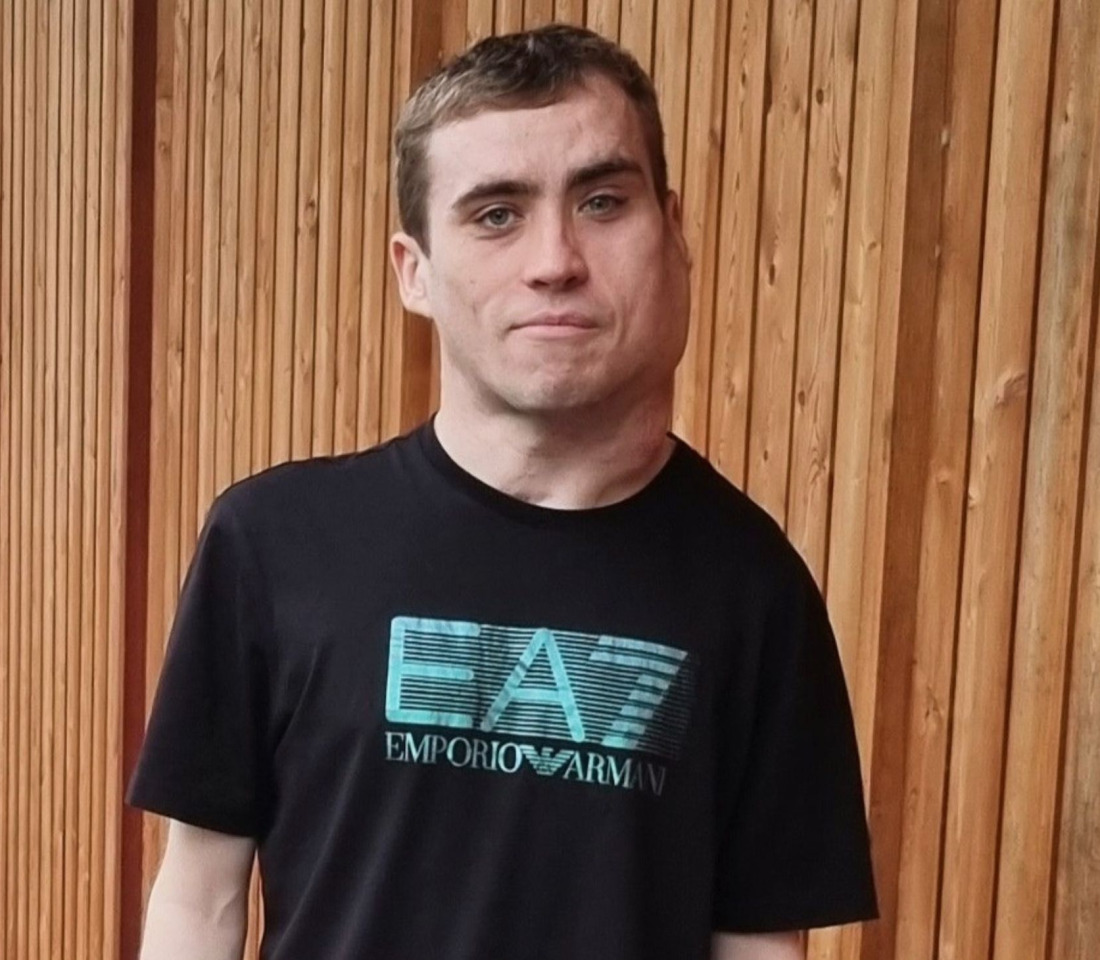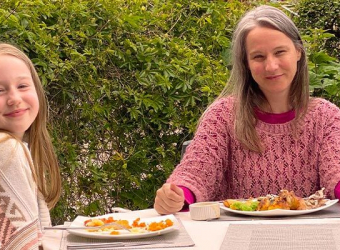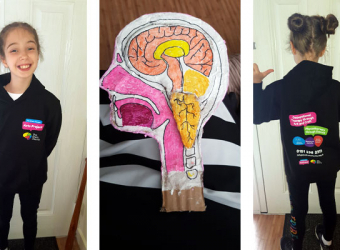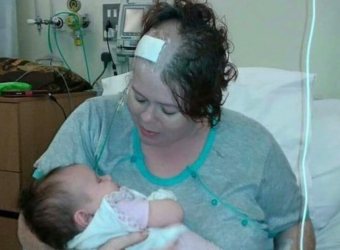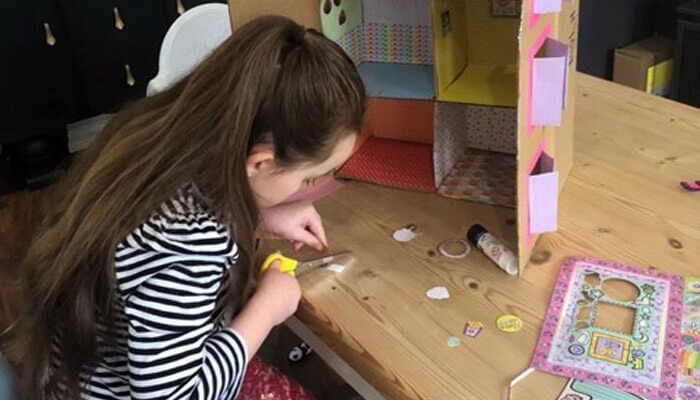
Rose’s posterior fossa syndrome story: “She was paralysed after tumour op; art helped her hold scissors again”
In 2016, mum-of-two Dee noticed her daughter Rose, then aged two, was walking with a slight limp.
Her GP diagnosed joint inflammation and prescribed the youngster painkillers, but the issues didn’t improve and soon spread to Rose’s arms.
The youngster would regularly lose balance, so four weeks later after her fourth GP visit Dee took Rose to A&E, where she was sent for an MRI scan.
The same afternoon, the family received the heart-breaking news Rose had a pilocytic astrocytoma brain tumour. The 3cm tumour was located in her brain stem and was the size of a ping pong ball.
Radiographer Dee said: “Rose getting a brain tumour diagnosis was like all the clichés, our world was completely turned upside down.
“I had googled her symptoms before we’d taken her to the doctor and I had seen brain tumour as a possible diagnosis but I had just thought it was impossible.
We were in complete shock.”
Just a week later, Rose began a gruelling course of chemotherapy at Alder Hey Children’s Hospital, which failed to reduce the tumour in size.
In June 2016, Rose underwent a 13-hour operation which removed 75% of the tumour.
But despite the success of the surgery, the operation left the youngster with posterior fossa syndrome.
This neurological condition describes a collection of symptoms that can affect speech, fine motor skills and the ability to swallow and is a risk associated with the removal of brain tumours in children.
For Rose, this started with almost total paralysis and she was unable to even swallow her own saliva.
She stayed in hospital for three months and had to relearn how to walk and talk but was left with lasting effects on her speech and fine motor skills.
Dee, 35, said: “After the operations there was no guarantee Rose would be able to walk again so obviously it was difficult emotionally.
“We did get to celebrate all the childhood milestones again, like her first steps and first words.”
After her daughter’s own chemotherapy and operation had concluded, Dee finished training as a radiographer and now works at Alder Hey, the same hospital where Rose received her treatment.
Rose, now eight, first took part in The Brain Charity’s Brain Changer Arts Project sessions online in March 2020 during the first COVID-19 lockdown.
Thanks to the workshops, which combine crafting and occupational therapy, Rose has seen huge improvements in her fine motor skills. She was even able to make her very own dolls house from scratch.
Dee said: “Rose being able to do things she enjoys that use fine motor skills has helped her improve a lot. I’ve noticed a big difference in her using scissors.
“Rose is very creative and can get frustrated when she doesn’t feel capable with her fine-motor skills.
Being able to use scissors might seem a small thing to some, but being able to make that dolls house really helped her keep on top of her mental health – especially through the lockdown.
“I would 100% recommend the Brain Changer Arts Project.
“It was welcoming, and they really made an effort to be inclusive to all ability levels.”
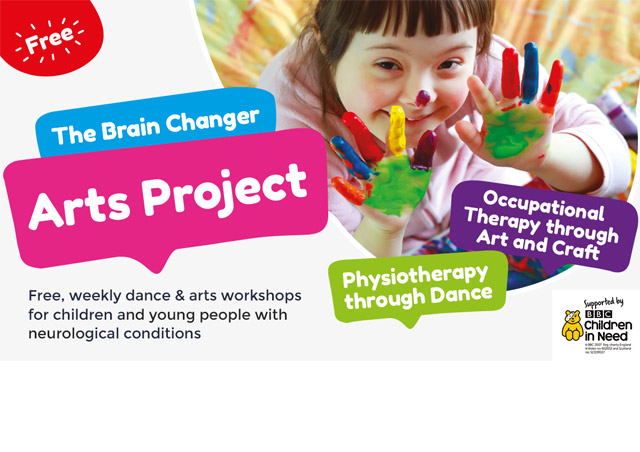
The Brain Changer Arts Project
Our fun, innovative, free and rewarding sessions provide physiotherapy through dance and occupational therapy through art and craft to help kids and young people engage with vital therapies in an enjoyable format.Categories: Help for carers, Help for children
Published: 7 October 2021


